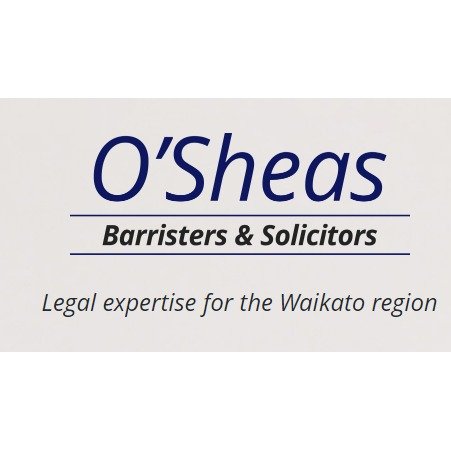Best Discrimination Lawyers in New Zealand
Share your needs with us, get contacted by law firms.
Free. Takes 2 min.
Or refine your search by selecting a city:
List of the best lawyers in New Zealand
About Discrimination Law in New Zealand
Discrimination in New Zealand is governed by laws designed to promote equality and protect individuals from unfair treatment based on certain attributes. The Human Rights Act 1993 and the Employment Relations Act 2000 are key pieces of legislation that safeguard individuals against discrimination. These laws cover various areas such as employment, accommodation, and access to public services, ensuring that people are treated fairly and equitably regardless of race, gender, sexual orientation, disability, and other protected characteristics.
Why You May Need a Lawyer
Seeking legal help for discrimination issues can be crucial for several reasons. Common situations where legal assistance might be needed include:
- Experiencing unfair treatment at work due to a protected attribute.
- Being denied housing opportunities based on race, gender, or other attributes.
- Facing barriers in accessing public services or education because of a disability.
- Being subjected to sexual harassment or racial harassment in any environment.
- Needing to navigate the complaints process through the Human Rights Commission or the Employment Relations Authority.
A lawyer can offer guidance on your rights under the law, help gather necessary evidence, and represent you in legal proceedings if required.
Local Laws Overview
The Human Rights Act 1993 and the Employment Relations Act 2000 are the primary laws addressing discrimination in New Zealand. Key aspects include:
- Protected Attributes: Discrimination is prohibited on various grounds, including age, gender, sexual orientation, race, disability, and more.
- Areas of Protection: Anti-discrimination laws cover employment, education, accommodation, and provision of goods and services.
- Complaints Process: Individuals can file complaints with the Human Rights Commission, which offers mediation services. Cases can escalate to the Human Rights Review Tribunal if unresolved.
- Employment Protections: Employers are required to provide a safe work environment free from harassment and discrimination. Employees have recourse through the Employment Relations Authority.
Frequently Asked Questions
What constitutes discrimination under New Zealand law?
Discrimination occurs when a person is treated less favorably than another in a similar situation because of a characteristic protected by the Human Rights Act or other relevant legislation.
Can I file a complaint if I have been discriminated against?
Yes, you can file a complaint with the Human Rights Commission. They offer a confidential, free, and impartial service to help resolve issues through mediation.
What is the role of the Human Rights Commission?
The Human Rights Commission works to promote and protect human rights in New Zealand. They provide a platform for mediation and can assess and refer cases to the Human Rights Review Tribunal.
What should I do if I face discrimination at work?
Document the incidents, gather evidence, and consider speaking to a lawyer. You may also raise the issue with your employer, and if unresolved, report it to the Employment Relations Authority.
Is positive discrimination allowed in New Zealand?
Positive discrimination or affirmative action may be permitted in certain circumstances to promote equality and address historical disadvantage experienced by certain groups.
How are disability rights protected under discrimination law?
Disability is a protected attribute under the Human Rights Act, and discrimination based on disability is prohibited. Employers, service providers, and others must make reasonable accommodations.
Can schools discriminate against students?
No, schools cannot discriminate against students on protected grounds such as race, gender, or disability. Policies and practices must be inclusive and equitable.
How long do I have to file a discrimination claim?
It's best to file a complaint as soon as possible, generally within 12 months of the event, to ensure effective resolution through the Human Rights Commission.
What happens if mediation does not resolve my issue?
If mediation fails, you may take your case to the Human Rights Review Tribunal, which has the power to make legally binding decisions.
Can I represent myself in a discrimination case?
While it's possible to represent yourself, having a lawyer can help navigate complex legal procedures and improve the chances of a successful outcome.
Additional Resources
Here are some resources and organizations that can be helpful:
- Human Rights Commission: Offers guidance and mediation services for discrimination complaints.
- Community Law Centres: Provide free initial legal advice and support across New Zealand.
- Employment Relations Authority: Handles employment-related disputes, including discrimination cases.
- Citizens Advice Bureau: Offers free, confidential advice on a wide range of issues.
Next Steps
If you need legal assistance regarding discrimination:
- Gather any relevant evidence and documentation related to your situation.
- Consider consulting with a lawyer who specializes in discrimination law to understand your rights and options.
- File a complaint with the appropriate body, such as the Human Rights Commission or Employment Relations Authority, if necessary.
- Be proactive in pursuing your case and follow legal advice to ensure the best possible outcome.
Remember, understanding your rights and taking timely action are key to addressing discrimination effectively.
Lawzana helps you find the best lawyers and law firms in New Zealand through a curated and pre-screened list of qualified legal professionals. Our platform offers rankings and detailed profiles of attorneys and law firms, allowing you to compare based on practice areas, including Discrimination, experience, and client feedback.
Each profile includes a description of the firm's areas of practice, client reviews, team members and partners, year of establishment, spoken languages, office locations, contact information, social media presence, and any published articles or resources. Most firms on our platform speak English and are experienced in both local and international legal matters.
Get a quote from top-rated law firms in New Zealand — quickly, securely, and without unnecessary hassle.
Disclaimer:
The information provided on this page is for general informational purposes only and does not constitute legal advice. While we strive to ensure the accuracy and relevance of the content, legal information may change over time, and interpretations of the law can vary. You should always consult with a qualified legal professional for advice specific to your situation.
We disclaim all liability for actions taken or not taken based on the content of this page. If you believe any information is incorrect or outdated, please contact us, and we will review and update it where appropriate.
Browse discrimination law firms by city in New Zealand
Refine your search by selecting a city.












